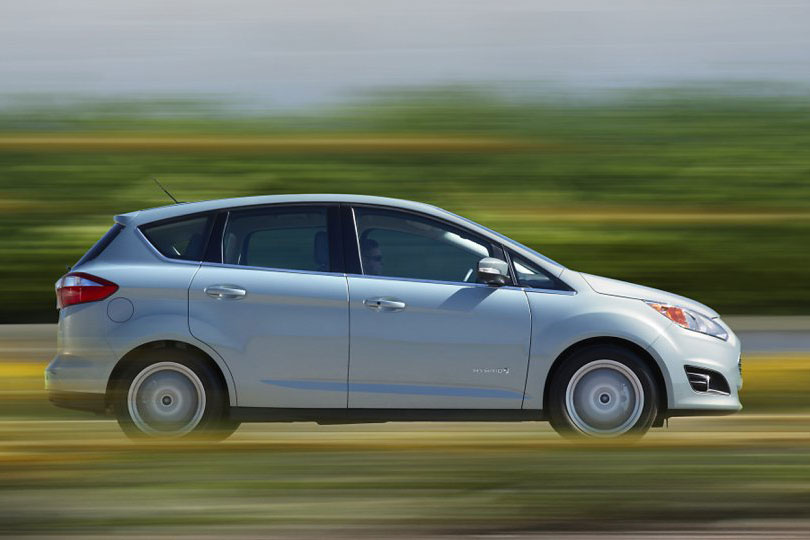
Ford Motor CompanyThe C-Max had a mileage fail.
Are you a hybrid owner who’s never managed to get the high gas mileage advertised on the car window? You’re not alone.
From the Los Angeles Times:
Bowing to criticism that its C-Max hybrid didn’t get the fuel economy claimed on its window sticker, Ford Motor Co. has restated the compact car’s mileage ratings and said it will … make a “goodwill” payment of $550 to people who purchased the C-Max and $325 to those who leased the vehicle.
Ford had previously claimed the 2013 C-Max hybrid got 47 mpg for combined city and highway driving. Now it’s saying 43 mpg. That’s still higher than the 37 mpg that Consumer Reports got when it tested the model.
And it’s not just Ford. More from the L.A. Times:
Last year, the EPA tested multiple Hyundai and Kia models that had become the focus of consumer complaints about fuel-economy ratings, and ordered changes to the labels. The agency said Hyundai and Kia overstated the fuel economy on more than a third of the vehicles they had sold in recent years.
The South Korean automakers issued an apology and said they would give special debit cards to nearly 1 million owners of the affected models to make up for the difference in the lower miles per gallon logged by the vehicles.
Inaccurate mileage claims are a widespread problem, particularly with hybrids — and yesterday the EPA announced that it is finally going to do something about it.
The Environmental Protection Agency said it would update its labeling rules — which date to the 1970s — to resolve disparities among the growing number of hybrid and electric vehicles on the market. …
The current fuel economy rules specify that automakers can use the same fuel-economy numbers for similar-size vehicles equipped with the same engines and transmissions. …
When the Fusion hybrid achieved 47 miles per gallon in combined city and highway driving, Ford was allowed to apply that rating to the C-Max hybrid as well. …
[Ford’s Raj Nair acknowledged] that it was difficult to make an exact comparison between the C-Max, a utility vehicle with a chunky design, and the sleeker-looking Fusion passenger car.
In the past, drivers wouldn’t know their exact mileage unless they tracked fill-ups and did some math, but now hybrids’ dashboards display real-time mpg numbers, so it’s a lot easier to know if a car doesn’t live up to an automaker’s claims.
The EPA didn’t lay out a time frame for changing its rules, but car companies may act soon on their own regardless. “Expect to see automakers stick to more conservative claims rather than risk the consumer and financial backlash that can result from inaccurate and inflated fuel-economy estimates,” auto analyst Alec Gutierrez told the L.A. Times.




